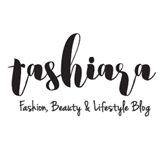Top 10 questions about bakuchiol serum

Bakuchiol serum has become a popular topic in the skincare community, especially as a natural alternative to retinol. Here, we answer some of the most frequently asked questions about Bakuchiol serum, helping you understand its benefits, usage, and effectiveness.
1. What is Bakuchiol?
Q: What exactly is Bakuchiol?
A: Bakuchiol is a plant-based compound extracted from the seeds and leaves of the Psoralea corylifolia plant, commonly known as babchi. It has been used in traditional Ayurvedic and Chinese medicine for centuries. In modern skincare, it is renowned for its anti-aging properties, often considered a natural alternative to retinol.
2. How does Bakuchiol compare to Retinol?
Q: Is Bakuchiol as effective as Retinol for anti-aging?
A: While both Bakuchiol and Retinol are used to address signs of aging, including wrinkles and fine lines, they work differently. Retinol, a derivative of Vitamin A, accelerates cell turnover and boosts collagen production but can cause irritation and sensitivity in some users. Bakuchiol, on the other hand, provides similar benefits without the harsh side effects. Studies have shown that Bakuchiol is comparable to Retinol in improving skin elasticity and reducing wrinkles but is gentler on the skin.
3. What are the benefits of using Bakuchiol Serum?
Q: What skin benefits can I expect from using Bakuchiol serum?
A: Bakuchiol serum offers several benefits:
- Anti-Ageing: Reduces the appearance of fine lines and wrinkles.
- Antioxidant: Protects skin from oxidative stress and environmental damage.
- Brightening: Improves skin tone and reduces hyperpigmentation.
- Acne-Fighting: Helps reduce breakouts due to its anti-inflammatory and antibacterial properties.
- Gentle: Suitable for all skin types, including sensitive skin.
4. Is Bakuchiol safe for all skin types?
Q: Can I use Bakuchiol serum if I have sensitive skin?
A: Yes, Bakuchiol is known for its gentle nature, making it suitable for all skin types, including sensitive and acne-prone skin. Unlike retinol, it does not cause dryness, redness, or peeling, making it a preferred choice for those who have had adverse reactions to retinol.
Satthwa Organic Bakuchiol Serum is a plant-based, natural alternative to retinol. Known for its anti-ageing, skin-firming, and pigmentation-reducing properties, bakuchiol is gentle on sensitive skin and safe for daily use, without the dryness, redness, or irritation often linked with retinol.
- Reduces fine lines and wrinkles Unlock radiant, youthful-looking skin with our Vitamin C Serum, featuring a powerful blend of Hyaluronic Acid to lock in moisture, Alpha Arbutin to brighten and even tone, Niacinamide to strengthen and firm, and Bakuchiol to soothe and calm. Experience the ultimate anti-aging treatment that leaves your skin looking smoother, brighter, and more radiant than ever before.
- Boosts CollagenRs.775 Rs.745Organic Bakuchiol Serum - Anti Ageing
- Improves skin elasticity and firmness
- 100% plant-based, safe for long-term useVitamin C Serum With Hyaluronic Acid
- Improves Uneven Skin Tone
- Brightens Complexion
5. How should I incorporate Bakuchiol serum into my skincare routine?
Q: What is the best way to use Bakuchiol serum?
A: To incorporate Bakuchiol serum into your skincare routine:
- Cleanse: Start with a clean face.
- Apply Serum: Use a few drops of Bakuchiol serum, gently patting it into the skin.
- Moisturize: Follow with a moisturizer to lock in the serum.
- Sun Protection: Use sunscreen during the day, as Bakuchiol can make your skin more sensitive to the sun, even though it is less photosensitizing than retinol.
6. Can Bakuchiol be used with other active ingredients?
Q: Is it safe to combine Bakuchiol with other skincare ingredients?
A: Yes, Bakuchiol is generally safe to use with other active ingredients. It can be combined with niacinamide, hyaluronic acid, peptides, and even retinol for a more potent anti-aging regimen. However, always do a patch test when trying new combinations to ensure no adverse reactions.
7. Are there any side effects of using Bakuchiol?
Q: What side effects should I be aware of when using Bakuchiol serum?
A: Bakuchiol is well-tolerated by most people and is less likely to cause irritation compared to retinol. Some users might experience mild redness or irritation, especially if they have very sensitive skin, but these side effects are rare and typically resolve quickly.
8. How long does it take to see results with Bakuchiol?
Q: When can I expect to see results from using Bakuchiol serum?
A: Results can vary, but most users begin to see improvements in their skin texture, tone, and reduction in fine lines within 4-12 weeks of consistent use. Patience and regular application are key to achieving the best results.
9. Can I use Bakuchiol serum during pregnancy?
Q: Is Bakuchiol safe to use during pregnancy?
A: Yes, Bakuchiol is considered safe for use during pregnancy. Unlike retinol, which is not recommended for pregnant or breastfeeding women due to potential risks to the fetus, Bakuchiol does not carry the same concerns. However, it’s always best to consult with a healthcare provider before starting any new skincare regimen during pregnancy.
10. What should I look for in a Bakuchiol serum?
Q: What are the key things to consider when choosing a Bakuchiol serum?
A: When selecting a Bakuchiol serum, consider the following:
- Concentration: Look for products with a higher concentration of Bakuchiol for more effectiveness.
- Formulation: Choose a serum with complementary ingredients like hyaluronic acid, niacinamide, or peptides.
- Brand Reputation: Opt for products from reputable brands with good reviews and transparent ingredient lists.
- Packaging: Ensure the serum is packaged in a way that protects it from light and air, as Bakuchiol can degrade with exposure.
Conclusion
Bakuchiol serum is a versatile and gentle skincare ingredient that offers numerous benefits, from anti-aging to acne treatment, without the harsh side effects of retinol. Suitable for all skin types, including sensitive skin, it can be a valuable addition to your skincare routine. With consistent use, you can achieve healthier, more radiant skin.
References
- Journal of Cosmetic Dermatology - Study on Bakuchiol vs. Retinol.
- British Journal of Dermatology - Research on the benefits of Bakuchiol.
- PubMed - Clinical trials and studies on Bakuchiol’s efficacy and safety.










